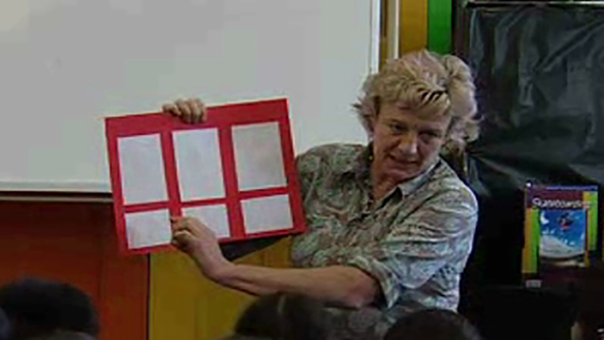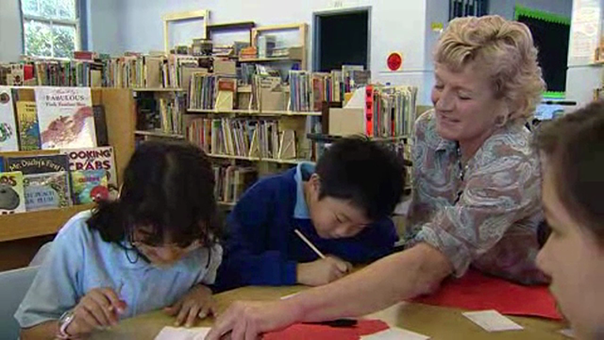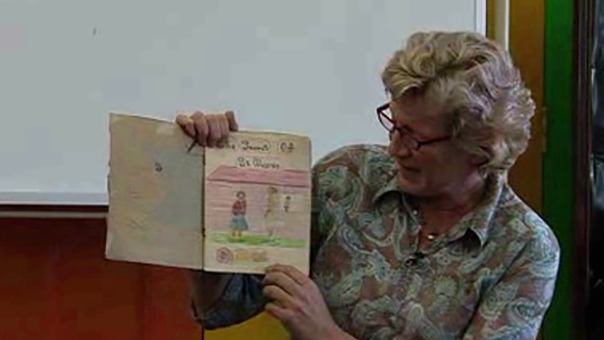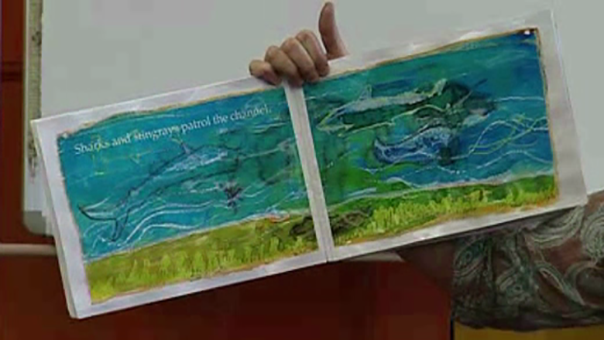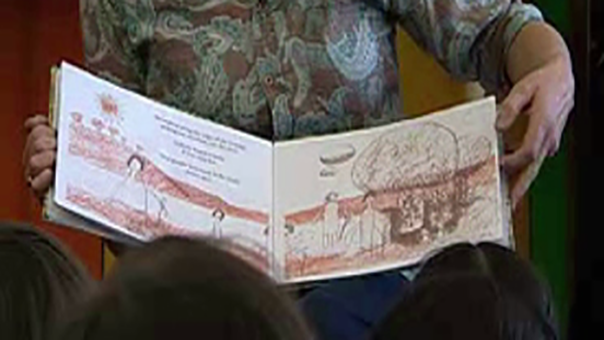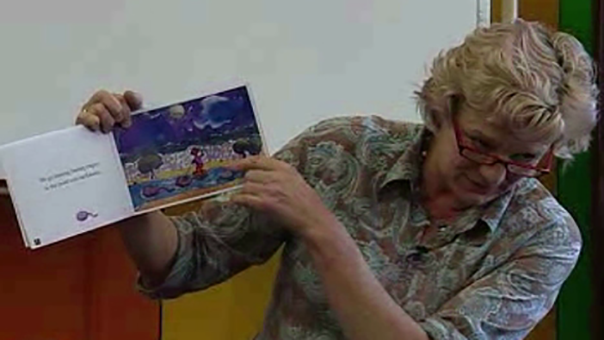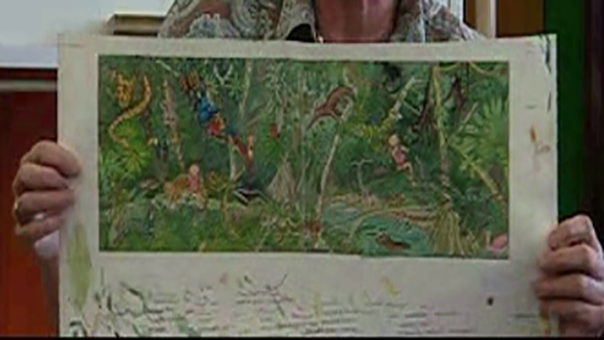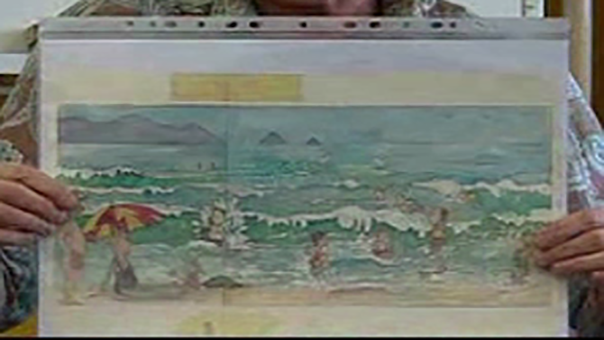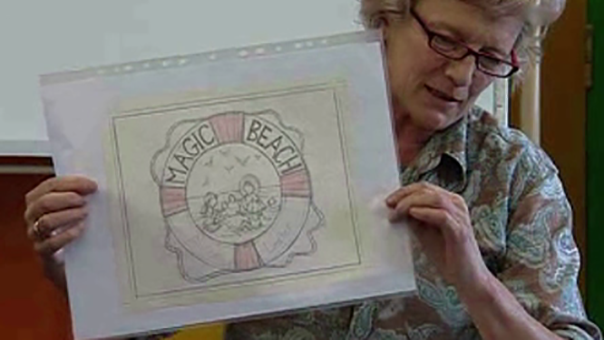5. Creating a class book - Assembling
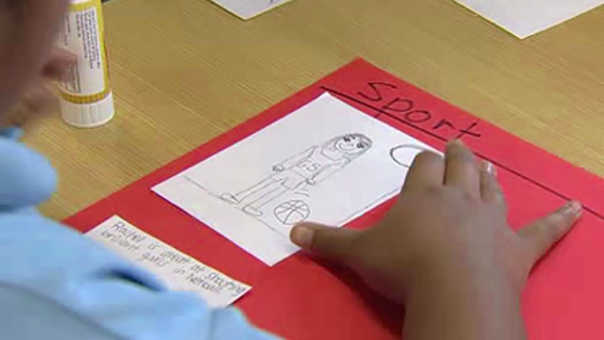
Viewing guide
Teacher to:
-
prepare cardboard for the paper draft of the class book
-
prepare laptops, cameras or a scanner if images and text are to be converted into digital files
-
lead the class in a discussion about the order and assembly of their book.
Students to:
-
work in their category groups to assemble their pages, following the structure modelled in the video, with three images to a page and the words underneath the image
-
convert their text and images into digital format if using ICT and then layout the structure of each page using the selected software
-
have a class discussion about the title and cover of the book, who will make it? What will it look like?
-
put the cardboard pages together into a readable book.
This lesson is designed to complete a draft paper version of the class book. The activities will not take that long unless students are creating digital versions of their files for a printable or digital book. As a result, this video and associated activities, can be combined with earlier videos.
Collaborative decision making
Students may need guidance to assign the creation of the cover to one or more students. This is an opportunity to promote the skills needed for collaboration and group decision making.
The following links will help you encourage cooperation and collaboration skills within your students:
-
‘Deeper Learning - A collaborative classroom is key’ on edutopia
-
‘Strategies for effective collaboration’ blog post on Scholastic.com
-
‘20 collaborative learning tips and strategies’ on teachthought
-
University of Waterloo article ‘Group decision making’
-
Structured stages for creating a consensus are available at seedsforchange.org.uk
Learning intention
Completing this activity affords students the opportunity to:
-
use knowledge of sentence structure, grammar, punctuation and vocabulary to respond to and compose clear and cohesive texts in different media and technologies (EN3-6B)
-
recognise, reflects on and assesses their strengths as a learner (EN3-9E)
-
acknowledge that audiences respond in different ways to artworks and that there are different opinions about the value of artworks (VAS3.3)
-
communicate about the ways in which subject matter is represented in artworks (VAS3.4)
-
optional - Learning across the curriculum: Information and communication technology capability.
Alison Lester: Oh, good on you. You could do that, do you want to be a sticker? So you have to make sure there's enough room for two more there. Yep, you can stick too. No, I think it looks ... no we won't worry about going over it in texta, just keep them in grey there because we need to get you home before dark. It gets so dark so early now. I was out running the other day and I thought it was going to get dark at six thirty and it got dark at a quarter to six. So, luckily I have dog with a white tail and I had to follow the dog's tail home. Okay, you can put yours on. Is everyone finished? Pretty close to being finished? Food, sport, games, is anyone doing school stuff? Anyone doing school? Yeah. Alright, I might do it up here and then you can be the sticker for that one too. If you're finished bring them up and we'll stick them in.


